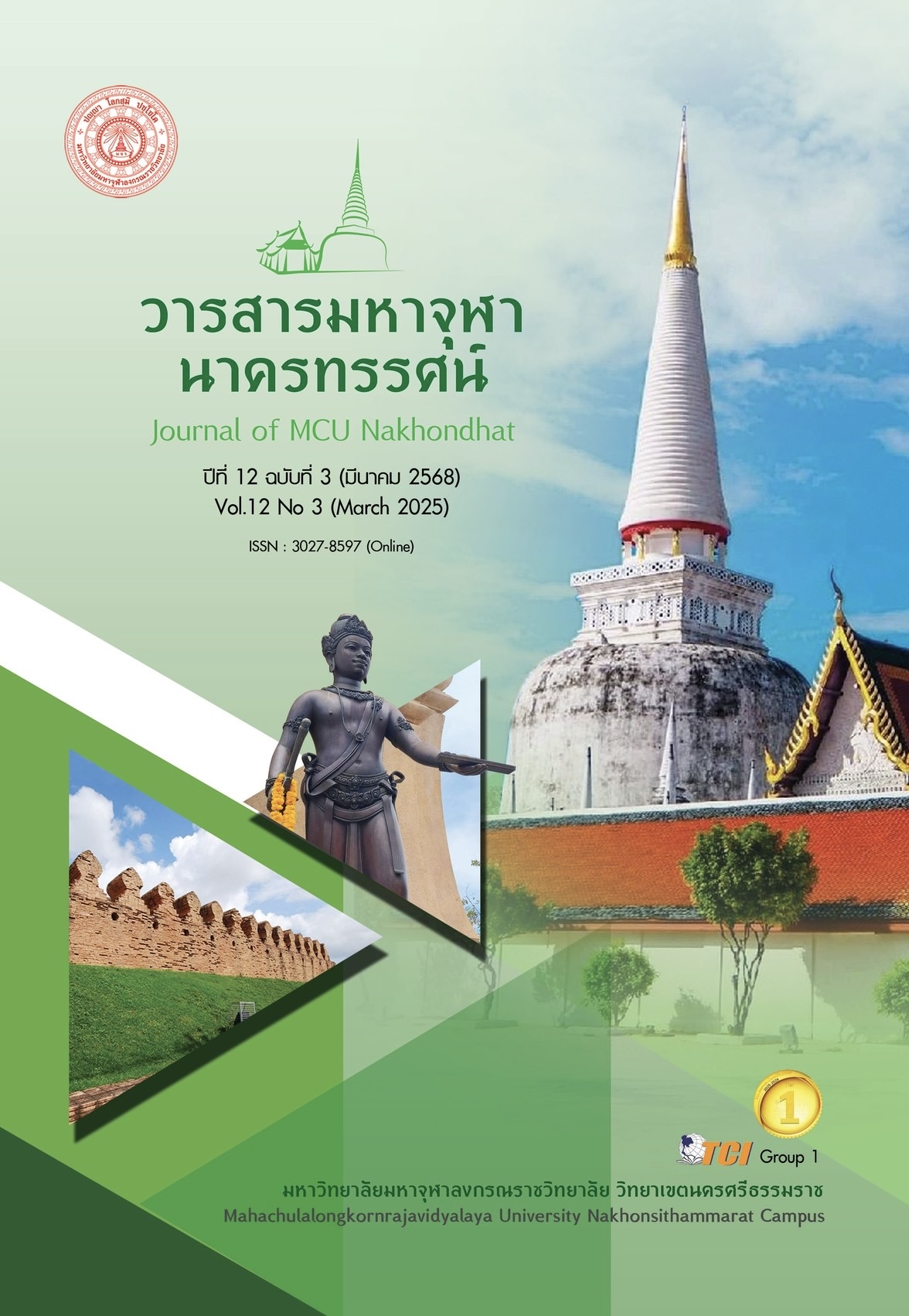MODEL LAW ON EXTENDED PRODUCER RESPONSIBILITY OF THE PACKAGING LIFECYCLE
Main Article Content
Abstract
This research aims to 1) Investigate legal problems related to Thailand’s packaging, 2) Explore principles and concepts related to extended producer responsibility of the packaging lifecycle, 3) Examine international environmental laws, foreign laws, and Thailand laws related to extended producer responsibility of the packaging lifecycle, and 4) Propose the model law on extended producer responsibility of the packaging lifecycle using the qualitative research methodology, i.e., documentary research, in-depth interview, and participation in forming laws, and public hearing on the draft law. The research results showed that Thailand does not provide any laws for efficient packaging management, causing environmental pollution and carbon footprint which is a factor of climate changes. According to the study of laws of the European Union, the Federal Republic of Germany, Kingdom of Norway, and the Socialist Republic of Vietnam, these countries have adopted extended producer responsibility, extended consumer responsibility, and life cycle assessment which are significant principles under the circular economy policy as the fundamental principles in legislating a law on extended producer responsibility of the packaging lifecycle. This research obtains “(draft) Green Packaging Act B.E. ….” as the model law leading to developing environmental laws. Moreover, it is the law corresponding to Thailand’s circular economy policy. The important structures include assigning packaging producers to be responsible for carbon footprint of the producer’s packaging lifecycle with producer responsibility organizations representing producers and promoting consumers to involve the local administrative organization in efficiency of packaging waste management.
Article Details

This work is licensed under a Creative Commons Attribution-NonCommercial-NoDerivatives 4.0 International License.
References
กรมควบคุมมลพิษ กระทรวงทรัพยากรธรรมชาติและสิ่งแวดล้อม. (2567). รายงานสถานการณ์มลพิษของ
ประเทศไทย ปี 2566 (Thailand State of Pollution Report 2023). เรียกใช้เมื่อ 14 มกราคม 2568 จาก https://www.pcd.go.th/publication/32171/.
สำนักงานนโยบายและแผนทรัพยากรธรรมชาติและสิ่งแวดล้อม. (2560). แผนการจัดการคุณภาพสิ่งแวดล้อม พ.ศ. 2560 - 2564. เรียกใช้เมื่อ 14 มกราคม 2568 จาก https://www.eppo.go.th/index.php/th/plan-policy/climatechange/thailand/eqmplan
สำนักงานนโยบายและแผนทรัพยากรธรรมชาติและสิ่งแวดล้อม. (2567). ลดโลกร้อนด้วย Carbon Neutrality และ Net Zero Emissions. เรียกใช้เมื่อ 14 มกราคม 2568 จาก https://www.onep.go.th/ลดโลกร้อนด้วย-carbon-neutrality-และ-net-zero-emissions/.
สำนักงานนโยบายและแผนพลังงาน กระทรวงพลังงาน. (2559). กรอบอนุสัญญาสหประชาชาติ (UNFCCC). เรียกใช้เมื่อ 24 มกราคม 2567 จาก https://www.eppo.go.th/index.php/th/plan-policy/climatechange/unitednation/unfccc
สำนักงานพัฒนาวิทยาศาสตร์และเทคโนโลยีแห่งชาติ (สวทช.). (2567). มาตรการ CBAM ใครพร้อม…ได้ไปต่อ ชวน ทำความเข้าใจ และ เตรียมความพร้อม เรื่องการปรับคาร์บอนก่อนข้ามพรมแดน EU. เรียกใช้เมื่อ 24 มกราคม 2567 จาก https://www.nstda.or.th/home/news_post/bcg-implementation-cbam/.
Climate Bonds Initiative, Word Bank. (2023). The Climate Bonds Standard & Certification Scheme’s Waste Management Criteria. Retrieved June 10, 2024, from https://www.climatebonds.net
Intergovernmental Panel on Climate Change. (2022). Climate change 2022 mitigation of climate change working group III contribution to the sixth assessment report of the intergovernmental panel on climate change. Retrieved January 24, 2025, from https://www.ipcc.ch/report/ar6/wg3/.
Law Teacher. (2013). Environmental law mechanisms in environmental law. Retrieved January 24, 2025, from https://www.lawteacher.net/free-law-essays/environmental-law/mechanisms-in-environmental-law.php?vref=1.
Mitch Webster. (2024). Extended Producer Responsibility Laws for Packaging Around the World. Retrieved June 10, 2024, from https://packagingschool.com/lessons/extended-producer-responsibility-laws-for-packaging-around-the-world.
OECD. (2024). Policy Scenarios for Eliminating Plastic Pollution by 2040. Retrieved January 14, 2025, from https://www.oecd.org/en/publications/policy-scenarios-for-eliminating-plastic-pollution-by-2040_76400890-en.html.
The Recycling Partnership Solving for Circularity. (2023). Accelerating behavior change to achieve a circular economy; 2023 Knowledge Report. Retrieved January 14, 2025, from https://recyclingpartnership.org/wp-content/uploads/dlm_uploads/2023/11/Knowledge-Report-Summary_Nov2023.pdf
The Recycling Partnership Solving for Circularity. (2023). Increasing Recycling Rates with EPR Policy. Retrieved January 14, 2025, from https://ml.globenewswire.com/Resource/Download/4dd844fc-52f2-4f40-a6fb-e4ad01b825dd
Trevor, M. L. (2020). Plastic Waste and Recycling: Environmental Impact, Societal Issues, Prevention, and Solutions. London, United Kingdom: Academic Press.
United Nations Environment Programme. (2024). Global Waste Management Outlook 2024: Beyond an age of waste - Turning rubbish into a resource. Retrieved January 15, 2025, from https://www.unep.org/resources/global-waste-management-outlook-2024


